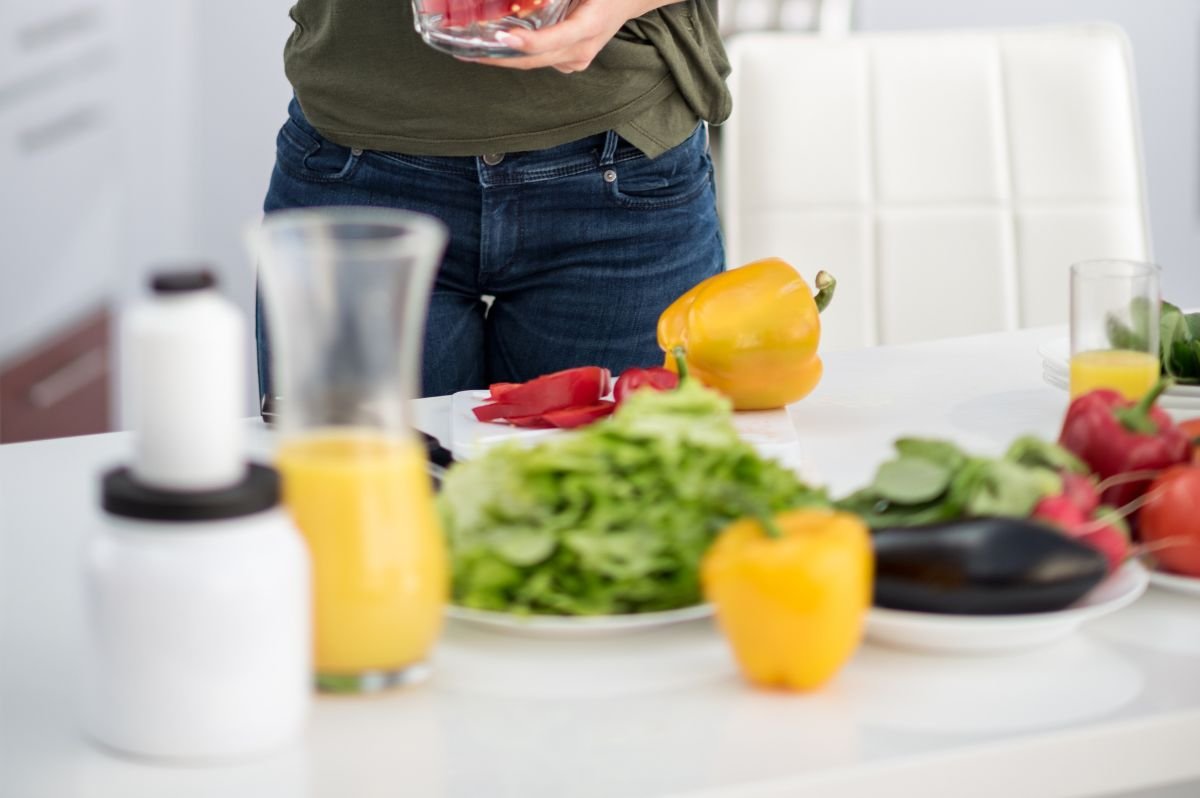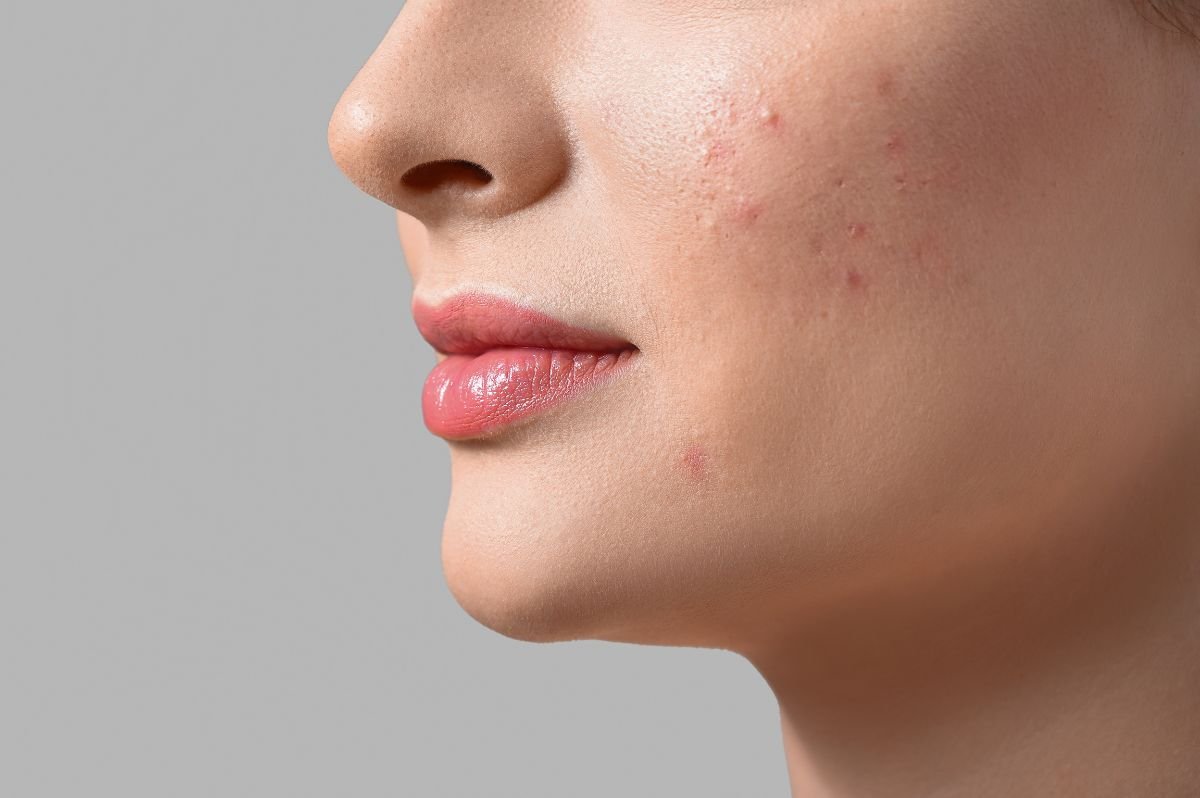Subscribe
Unlock 10% OFF
Subscribe and save 10% off your first product purchase*. Plus get access to our latest promotions, tips, insider interviews, news, events, invitations and more.
* T&Cs apply
Eating well is essential for optimising your skin health and function and is an important part of your acne healing journey. Alongside high-quality skincare and topical treatments for acne, your diet is a crucial part of reaching your goal of glowing skin! Read on to learn more about what to eat and what not to eat if you have acne.

Your diet can help fight and treat your acne. Certain foods can trigger breakouts and cause acne too. Cow’s dairy often contains A1 protein which can increase inflammation and insulin-like-growth factor (IGF) which increases oil production in the skin and acne. Gluten containing foods can also cause inflammation in the digestive tract which can cause acne in some people.
Just like your diet can cause acne, it is also empowering to know that your diet can help heal your acne. Aiming for a wholefoods diet with all food groups, fruit, vegetables, wholegrains, meat, seafood, eggs, goats/sheep dairy, seeds/nuts and plenty of water is a great place to start if you are wanting to improve your diet.
Restricting your diet or food intake can lead to many nutrient deficiencies which can imbalance your hormones and lead to acne. Following a plant based vegan or vegetarian diet may increase the risk of nutrient deficiencies including iron, zinc, omega 3, vitamin D, vitamin A, B12 and protein.
To clear acne with diet, you should try to:

The way you live your life could be causing your acne. Alcohol consumption can impact both your digestive system and liver function which can cause acne. Alcoholic drinks often contain high amounts of sugar too, which can lead to acne formation.
Vaping and smoking cause a high level of inflammation in the body and impact the immune system due to the toxins that enter the body. These toxins cause inflammation in the skin and acne.
Exercise is important for lymphatic detoxification and hormonal balance so aiming for 30mins – 1 hour each day is a great way to have an acne friendly lifestyle. However, it is important to know that excessive exercise can deplete you of nutrients, spike your cortisol and lead to hormonal imbalances that cause acne. Balance is key – listen to your body!
High stress levels can cause acne as stress impacts hormonal balance, your digestion, nutrient status, and blood sugar regulation. It is important to seek support and help if you are feeling stressed or to start making changes to your lifestyle such as:
A low glycaemic diet (low sugar diet) can help acne through reducing inflammation and by regulating your blood sugar levels which essentially helps to regulate your insulin and hormones (androgens) that can cause acne.
Swapping sweet foods to less processed sugars such as fruit, dark chocolate and matcha is helpful. Eating enough protein rich foods (eggs, tofu, meat etc.) with each meal is important to lower your sugar spikes. Fat intake (avocado, olive oil, nuts/seeds, salmon) are also low GI foods.
If you’re wondering you to treat your acne naturally, seeing a Naturopath is a great place to start as they are natural medicine professionals. Your naturopath will assess your health and acne including your diet and lifestyle to see what areas you need to work on for clear skin. You may have other causes of acne such as gut microbiome imbalances or hormonal imbalances which need to be tested through blood testing with specific prescriptions to treat them.
 If you would like to discuss how to treat acne with a naturopath, chat with Face Fit’s Naturopath Evie. Start with a Free 15 Minute Discovery Call.
If you would like to discuss how to treat acne with a naturopath, chat with Face Fit’s Naturopath Evie. Start with a Free 15 Minute Discovery Call.
Contact us to schedule a Consultation, we also offer Telehealth appointments!
Enjoy a special offer or book in a treatment and join the many happy Face Fit clients. With over 100 Five-star reviews, let our team of experts help you reach your skin goals and enhance your confidence today.
Enjoy a special offer or book in a treatment and join the many happy Face Fit clients. With over 100 Five-star reviews, let our team of experts help you reach your skin goals and enhance your confidence today.
Thousand’s of people agree…Face Fit are the #1 clinic for all your Anti Wrinkle, Dermal Filler and Advanced Skin Treatments & Products on the Gold Coast. Welcoming new clients.
Subscribe and save 10% off your first product purchase*. Plus get access to our latest promotions, tips, insider interviews, news, events, invitations and more.
* T&Cs apply